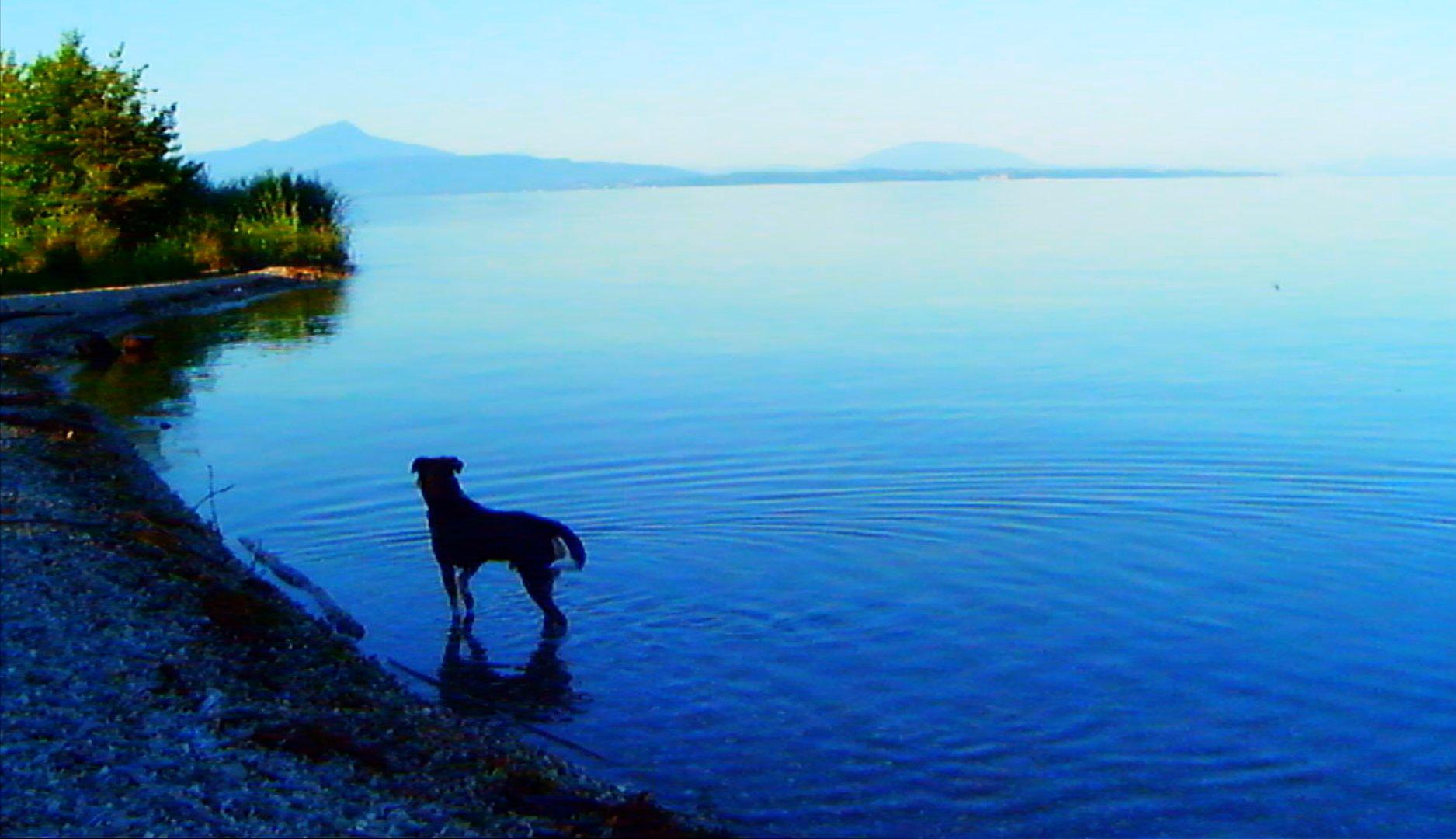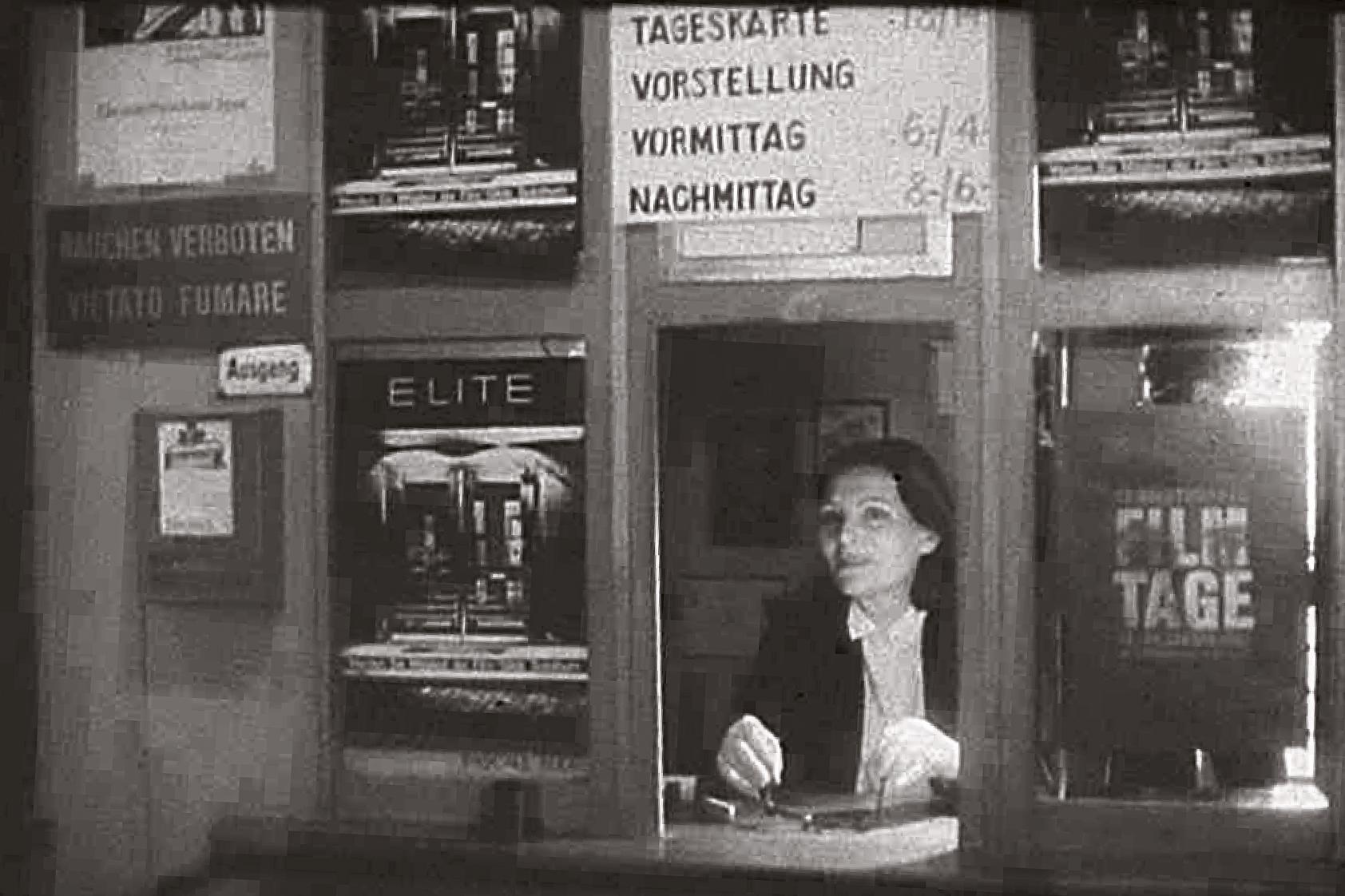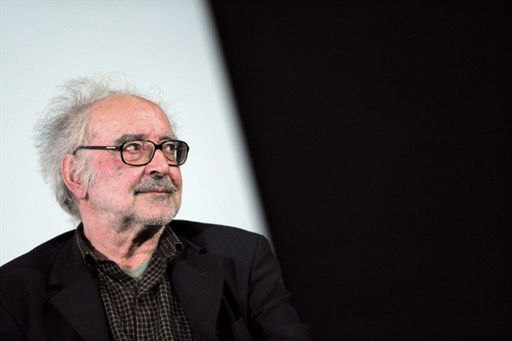Godard still follows his own experimental path

The startling three-dimensional effects in Jean-Luc Godard’s latest film “Adieu au langage” (Goodbye to language) are the work of Fabrice Aragno, who spoke to swissinfo.ch just before the presentation of the 2015 Swiss Film Honorary Award to Godard.
swissinfo.ch : For over ten years you have been working with Jean-Luc Godard. How did this collaboration start? Were you a big fan of his films?
Fabrice Aragno : It all started with a message on my answering machine. Ruth Waldburger, Godard’s producer, asked me, after we had done some work together, if I would be interested in working with Jean-Luc. Of course! I said. Then one day I got a message from Jean-Luc on my machine asking me to call him back.

More
Homage to a master of New Wave Cinema
It was funny. I come from the Italian cinema tradition – Fellini, Taviani, Olmi and most of all Antonioni. Godard was not my favourite director. I had only seen some of his films, the best-known ones. So, in a sort of panic, I went around looking for videos of his films, and devoured them in a matter of a few days. It was stupid, really. I was afraid he might start asking me things and I would look like a fool… knowing all the rumours about him being hard to get along with.
So then, one Sunday morning, I went to his studio, feeling a bit intimidated. Even before I went in, I could smell his cigar smoke and realised that this was the lair of a wild animal! In through the glass door, I saw a figure against the light. The atmosphere was peaceful. All of a sudden I forgot all my fears. This was just an ordinary man smiling at me and asking me to look at some locations and find him some extras.
swissinfo.ch : How would you describe your relationship?
F.A.: We do not have a particular relationship. We are what we are, both a bit shy. We communicate in our own way. In general we don’t talk all that much, which is partly due to the fact that I am not much of a talker.
Godard takes people as they are, and that is something I appreciate. He puts me at ease, and that means I can experiment without having any worries. I enjoy playing with the technical side, I really get into it. And the fact that I don’t have a technical background, but one as a filmmaker, gives me more freedom.
The same thing goes for the actors. Jean-Luc films a dog, a tree, or an actress all in the same way, just because what he is looking for is their essence – he wants to get to the heart of things. At times the actors’ egos can feel bruised by this, but from my point of view it’s a compliment. Anyway, that is my vision of Jean-Luc, a vision that is necessarily subjective, because I don’t believe that objectivity really exists.
swissinfo.ch : After “Film Socialisme”, Godard asked you to work on a project involving a film in 3D. How did the idea develop?
F.A.: Jean-Luc asked me if I felt like experimenting a bit with 3D, on my own. That’s his way of starting a new project. For “Film Socialisme”, the first time we were going to film on the cruise ship, just two days before, he announced he wasn’t coming. “If I was there with you, you would be trying to keep me happy and nothing would come of it. So just feel free.” And so we went off on an adventure.
swissinfo.ch : He gives you freedom of action, then.
F.A.: In reality, it’s not that he gives me a lot of freedom, but that he never took it away from me in the first place.
swissinfo.ch : In “Adieu au langage”, the use of 3D is surprising and at the same time poetic. How did you arrive at this innovative result?
F.A.: Those were the “Avatar” years and everybody was talking about 3D. In reality, however, that film is flat and disappointing, like all cinema in 3D. The narration doesn’t change and the effects are minimal. So what’s the point of it? We wanted to make a film that could stand alone in 3D, to make use of this technique to express something new.
The 3D technique is really very simple, despite what the film industry tries to tell us. It involves one image for the right eye and one for the left. Starting from there, we tried to reproduce that effect, building a special environment and using different sorts of equipment: photo cameras, videocameras and smartphones. I had fun playing with the grain of the image, and overlay, and the “flip flop” effect, which allows you to see two different actions by closing one eye, then the other.
I work in an intuitive way, without thinking of whether what I am doing will be part of the film – though it does make me happy when I see that there was a shot he liked. But frankly, what makes these effects special is what Jean-Luc manages to do with them, the way he uses them. He has the ability to create a work of art from the most ordinary images.

More
Goodbye to Language
swissinfo.ch: The plot synopsis for this film sounds very simple, and it starts like this: “A married woman and an unattached man meet. They fall in love, they quarrel. A dog wanders between the city and the countryside…” How does a Godard film take shape?
F.A.: A film by Jean-Luc is a bit like rock candy on a stick. He crystallises the ideas he has at the moment and shapes them around the film. The quotes in “Adieu au langage”, for example, were all in his head. Roxy the dog is actually his own. He was two years old at the time. Jean-Luc had noticed that whenever he took the dog for a walk, people suddenly started talking to him. That provided the idea of a dog that makes it possible for a relationship to keep existing.
swissinfo.ch : The films of Godard are often sensitive and subliminal journeys, where a great deal is left to the interpretation of the viewer. Is this a way of keeping a distance from the more commercial type of cinema?
F.A.: I would not put it in terms of interpretation, but feeling. Because, is it always really necessary to interpret everything? Beside a painting you don’t see a written explanation of what it means. The same goes for Jean-Luc’s films: they speak to each person in a different way, like a work of art.
In today’s cinema we keep getting the same stories, told using the same format. Jean-Luc’s films are complex, admittedly. But there can be a freer cinema, a less ordinary one, even if it’s done a different way. We need to open the public’s eyes.
That said, I don’t really believe that just because today’s cinema is the way it is, Jean-Luc decided to do the exact opposite. He doesn’t work in opposition to others, but to himself. And yet it’s sad to see that nine-tenths of the directors don’t take advantage of the freedom they really have.
Cinema isn’t dead, as we so often hear. We are only at the beginning, and there are so many things to explore. It is enough just to get off the beaten path.
Fabrice Aragno
Born 1970 in Neuchâtel, Fabrice Aragno trained in architectural draughtsmanship, directing and lighting techniques for the theatre, and film directing.
For a number of years he worked in the field of puppet theatre, but in other areas too. “Dimanche”, the short film he made for his diploma at the Lausanne Art School (ECAL) was nominated at Cannes in 1999. Since then, Aragno has made shorts and longer films and documentaries. He started the Casa Azul production firm together with some former fellow-students.
Since 2002 he has been working with Jean-Luc Godard, on “Notre musique” (2004), “Film socialisme” (2010) and “Adieu au langageExternal link” (2014). Made in 3D, this latter film won the jury prize at last year’s Cannes Festival.
Translated from Italian by Terence MacNamee

In compliance with the JTI standards
More: SWI swissinfo.ch certified by the Journalism Trust Initiative












You can find an overview of ongoing debates with our journalists here . Please join us!
If you want to start a conversation about a topic raised in this article or want to report factual errors, email us at english@swissinfo.ch.